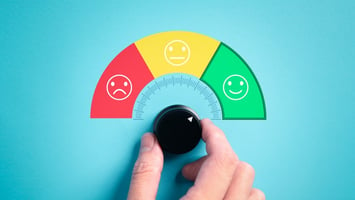Initial Effects of Liking, Wanting Alcohol Linked to Later Development of Alcohol Use Disorder

Young adults who are particularly sensitive to the pleasurable effects of alcohol appear more likely to develop alcohol use disorder (AUD) within a decade than those who do not experience these feelings as young adults, according to a study in AJP in Advance. The study also found that people who developed AUD over the 10-year period reported increases in wanting alcohol over time.
“[M]arked stimulant-like, pleasurable, and appetitive effects after consuming alcohol are risk factors for the development and maintenance of addiction,” wrote lead author Andrea King, Ph.D., of the University of Chicago and colleagues.
King and colleagues analyzed follow-up data on 184 adults aged 21 to 35 years old enrolled in the Chicago Social Drinking Project—a study with repeated laboratory assessments of acute responses to alcohol compared with placebo over a 10-year period. For inclusion in the study, the participants had to weigh between 110 and 210 pounds, have good general health, and have no current or past major medical or psychiatric disorders.
For the initial evaluation as well as five and 10 years later, participants attended two individual four- to five-hour laboratory sessions, where they were asked to drink a beverage containing alcohol or placebo (placebo was masked to taste like alcohol). After consuming the beverage during these sessions, the participants were evaluated using the Biphasic Alcohol Effects Scale (assessed stimulation and sedation) and repeatedly asked such questions as “Do you like the effect you are feeling now?” and “Would you like more of what you consumed right now?”
Participants were evaluated for AUD using the structured Clinical Interview for DSM-IV at 1, 2, 4, 5, 6, 8, and 10 years following the initial assessment.
A total of 39 participants met criteria for AUD at year 10. At the initial assessment, the AUD group showed increased stimulation, feelings of “liking” the effect of alcohol, and feelings of “wanting” more alcohol compared with the non-AUD group. Moreover, the feeling of wanting more alcohol increased at the five- and 10-year follow-up in the AUD group; liking alcohol remained high but stable. In comparison, the non-AUD group showed low initial levels on measures of both liking and wanting more alcohol, with little or no change at later testing phases.
The findings are consistent with the “incentive-sensitization theory” of addiction: People increasingly want the substance to which they are addicted, King and colleagues noted.
The researchers said that the study points to preventive interventions designed to reduce the pleasurable effects associated with early drinking.
“Pharmacological and behavioral interventions focused on reducing positive rewarding effects and motivational salience during acute alcohol consumption may be crucial in future medication development and treatment of AUD,” they wrote.
For related information, see the Psychiatric News article “Underage Drinking Declines but Extreme Binge Drinking Rises.”
(Image: iStock/kmk-vova)
Don't miss out! To learn about newly posted articles in Psychiatric News, please sign up here.






